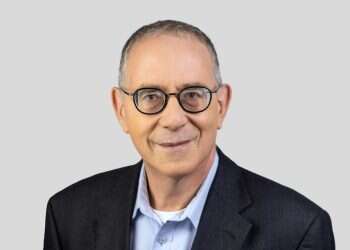The Coalition agreements have brought the painful subject of secular studies in Ultra-orthodox schools back on the agenda.
Follow Israel Hayom on Facebook, Twitter, and Instagram
We could choose to continue to participate in the muddy battle, slander the other, feed into the narrative of the media and the politicians, or we could try and think outside the box and propose an idea. Although mine might not be a long-term solution, it does provide a quick fix to the basic problems.
First of all, let's debunk the myth that the ultra-Orthodox sector is not integrated into the workforce. The sector has 400,000 men and women who are of working age (25-64). The employment rate among women stands at 79%, which is similar to the rate of their secular counterparts (81%).
The bigger issue is with ultra-Orthodox men, whose employment rate stands at only 52%. And even the men that do work usually have lower-paying jobs, stemming from a lack of quality education. On average, Haredi men earn half the salary of their non-Orthodox counterparts (8,800 shekels, or $2,350, compared to NIS 17,000, or $4,500).
In short, 65% of Haredim participate in the labor market and over 250,000 go to work every morning. Another 100,000 men do not work and fully dedicate their lives to Torah learning.
The majority of the ultra-Orthodox sector is already integrated into the workforce, and the actual problem is low wages and productivity.
Instead of accusing Haredim of a lack of contribution, the time has come to create solutions tailored to the sector and dramatically improve the professional skills of those who are already working or are about to start.
Unlike a secular Israeli Jewish man, whose preparation for a professional career begins in elementary school, and continues throughout high school and university, an average ultra-Orthodox man begins this journey in his twenties, once he is married.
Therefore, in order to optimally integrate Haredi men into the labor market, we need a strategic plan that will include professional, high-quality, and supervised education adapted to the ultra-Orthodox lifestyle and to the later age at which they begin work.
Recent data shows that such programs implemented at Haredi girls' schools excel, with the graduates now integrated into the fields of accounting and high-tech, earning salaries similar to their secular counterparts.
True, these solutions are not perfect, and ideally, such professional education for Haredi men should begin at an earlier age, but we are unlikely to reach such an agreement in the near future.
The choice we do have right now is between continuing to fight or finding a solution that will make our society better. I suggest the second option.
Subscribe to Israel Hayom's daily newsletter and never miss our top stories!



